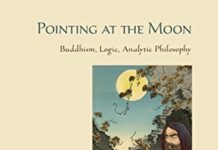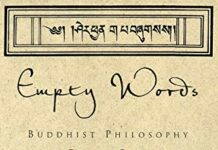
Ebook Info
- Published: 2014
- Number of pages: 658 pages
- Format: PDF
- File Size: 6.25 MB
- Authors: Jay L. Garfield
Description
The Oxford Handbook of World Philosophy provides the advanced student or scholar a set of introductions to each of the world’s major non-European philosophical traditions. It offers the non-specialist a way in to unfamiliar philosophical texts and methods and the opportunity to explore non-European philosophical terrain and to connect her work in one tradition to philosophical ideas or texts from another. Sections on Chinese Philosophy, Indian Philosophy, Buddhist Philosophy, East Asian Philosophy, African Philosophy, and Recent Trends in Global Philosophy are each edited by an expert in the field. Each section includes a general introduction and a set of authoritative articles written by leading scholars, designed to provide the non-specialist a broad overview of a major topic or figure. This volume is an invaluable aid to those who would like to pursue philosophy in a global context, and to those who are committed to moving beyond Eurocentrism in academic philosophy.
User’s Reviews
Editorial Reviews: Review “This is a much-needed, progressive source promoting a more holistic and inclusive cross-cultural dialogue. It should lead what, in the past, have been seen as disparate philosophical traditions to engage in what could truly become world philosophy, or ‘doing philosophy’ on a global scale. Highly recommended.” –CHOICE About the Author Jay L Garfield is Kwan Im Thong Hood Cho Temple Professor of Humanities at Yale-NUS College. William Edelglass is Professor of Philosophy and Environmental Studies, Marlboro College.
Reviews from Amazon users which were colected at the time this book was published on the website:
⭐This book is an attempt to give summary coverage to major non-western philosophical traditions in a reasonably rigorous manner. Given the impossibility of compressing so much material into a single book, the book is not going to please everybody, but given the restrictions, I think the editors did a reasonably good job, with some caveats.I’m personally most familiar with Indo-Tibetan Buddhist philosophy, and the articles in that section are all excellent overviews of ares of that tradition. The sections on Chinese, Islamic, and non-Buddhist Indian philosophy are all similarly substantive and were quite informative to me. The writing is dense but generally clear and jargon free. The articles on Japanese ethics and aesthetics are disappointing, lacking the rigor of the surrounding essays, but they are exceptions.The final two sections are another story. “Philosophy in Africa and the African Diaspora” is a huge and diverse subject, and the essays don’t begin to cover the subject, instead tending toward uninformative theoretical generalizations. For example, Tsenay Serequeberhan’s “Africana Philosophy” spends most of its time discussing Gadamer, Vattimo, and Taylor rather than Africana philosophers.This is fortunately followed by Barry Hallen’s excellent overview of African philosophy proper. The problem is that Hallen’s topic could easily have filled the entire section, and perhaps should have, since I would have preferred to read more about Kwasi Wiredu and Kwame Gyekye than to read the very familiar and pedestrian article on affirmative action, which closes out the section. Wiredu edited the far more comprehensive
⭐, which is recommended to anyone seeking better coverage.The last section on “Recent Trends in Global Philosophy” is a similar mishmash, picking a handful of areas (global feminism, reparations) out of a huge subject with little logic. Again, if “there is no western philosophy here,” as the editors claim in the general introduction, why am I reading five pages about John Rawls in the section on reparations?I criticize sympathetically, because the greater part of this anthology is genuinely good, important, and awareness-raising, and it’s a missed opportunity to have finished with such scanty coverage of two equally significant areas. A more logical (but costly) path would have been to create three handbooks instead of one: one volume on Asiatic philosophy, one entirely on Islamic philosophy (the coverage here is good but not as extensive as for the Asiatic traditions), and one entirely on African philosophy, akin to Wiredu’s volume.
⭐There is no doubt that this text covers much of world philosophy. However, the manner in which it is presented is atrocious. Reading it was akin to walking through waist high mud. It is not necessary to see the Japanese characters or the Chinese pronouncitations to understand the philosophy. It is really unbearable to get through. Additionally one must have a dictionary handy because there are many $5 words used when a $2 word would suffice. I have a graduate degree and really hated the way the authors cplicated an already challenging subject.
⭐Very handy to have as a resource.
⭐Awesome
Keywords
Free Download The Oxford Handbook of World Philosophy (Oxford Handbooks in Philosophy) in PDF format
The Oxford Handbook of World Philosophy (Oxford Handbooks in Philosophy) PDF Free Download
Download The Oxford Handbook of World Philosophy (Oxford Handbooks in Philosophy) 2014 PDF Free
The Oxford Handbook of World Philosophy (Oxford Handbooks in Philosophy) 2014 PDF Free Download
Download The Oxford Handbook of World Philosophy (Oxford Handbooks in Philosophy) PDF
Free Download Ebook The Oxford Handbook of World Philosophy (Oxford Handbooks in Philosophy)




